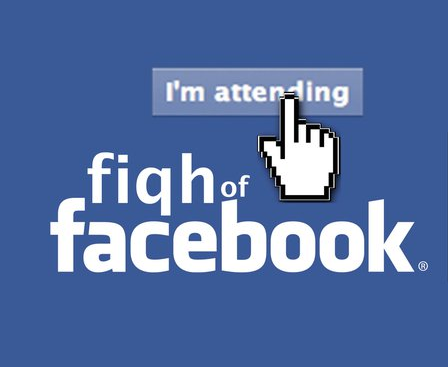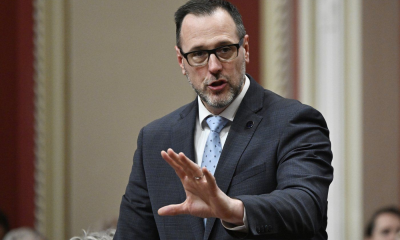Uncategorized
Fiqh of Facebook: The Manners & Etiquettes of Social Media Interaction
Published

Cross-posted from: http://abdullahhasan.net/?p=6363
Lecture (Dars) by Ustadh Abdullah Hasan to the Young Muslims Organisation at the East London Mosque on 28/01/2011. Notes taken by Brother Muhammad AbdulHye
There is no doubt that social media has revolutionized online communication in the last few years. In just over a few years Facebook has become one of the most popular websites visited on the internet and today has more than 500 million members. If Facebook was a country, then it would have the 3rd largest population in the world.
Keep supporting MuslimMatters for the sake of Allah
Alhamdulillah, we're at over 850 supporters. Help us get to 900 supporters this month. All it takes is a small gift from a reader like you to keep us going, for just $2 / month.
The Prophet (SAW) has taught us the best of deeds are those that done consistently, even if they are small. Click here to support MuslimMatters with a monthly donation of $2 per month. Set it and collect blessings from Allah (swt) for the khayr you're supporting without thinking about it.
Facebook is a social media application that allows people to communicate through leaving messages on their friends’ ‘wall’ or by subscribing to their status updates. It also has an instant messaging facility. Users can also subscribe to various different groups including official groups set up by celebrities, politicians, academic, corporations as well as groups representing different causes.
Facebook is seen as quite controversial today by some Muslims who see it as a platform for fitnah and as a result warn others not to use Facebook. There is some misconception surrounding this because Facebook is a communication tool which can be used in a good way or a bad way. This lecture (dars) insha’Allah will help address some of these misconceptions, present some of the good and bad aspects of Facebook and also present some guidance with regards to how Facebook can be used to add value to a person’s time online or at least avoid the dangers of online communication.
Before we go into some of the details allow me to quote some important words to start you off thinking about this topic.
What is “Social”? Definition: of or relating to human society, the interaction of the individual and the group, or the welfare of human beings as members of society.
“The newest computer can merely compound, at speed, the oldest problem in the relations between human beings, and in the end the communicator will be confronted with the old problem, of what to say and how to say it.” ( Edward R. Murrow)
“A world community can exist only with world communication, which means something more than extensive short-wave facilities scattered about the globe. It means common understanding, a common tradition, common ideas, and common ideals.” (Robert M. Hutchins)
Remember these words as we go along, insha’Allah.
What can you do on social media websites such as Facebook?
- Facebook is an online platform that brings the world population together [those who have access to the internet]. It removes national borders and avoids visa restrictions. In essence you can interact directly with anybody from any part of the whole provided they have become your ‘friend’.
- You can interact with family and friends who may live in another city or country.
- You can post pictures, videos which can be shared with people who you have accepted as ‘friends’
- You can post links to various different websites, sources
- You can create groups or pages to represent a cause, i.e. support for Palestinians
- You can directly contact corporations, local government, schools and other institutions
- You can subscribe to updates from corporations, local government, schools and other institutions so you are kept informed with updates, announcements, events etc.
How has Facebook been used positively?
- Facebook is an excellent tool for dawah activities. You can publish posts contain Quranic ayats, Prophetic hadiths, quotations and general nasiha which other people can benefit from. You can also publish videos from YouTube containing your favorite Quran recite or lectures from your favorite Islamic scholar or preacher. All of this serves as a good reminder for other people.
- Facebook has been particularly effective in viral marketing, it is said that the most effective marketing is word-of-mouth or recommendation by one person to another person. This is how many videos, articles have spread like wildfire and have become well known instantaneously as people will generally view what others have already viewed and posted on their ‘wall’. We have become aware of many injustices committed in wars as a result of people posting and sharing videos that was previously kept hidden, for example, a video of U.S. army personnel shooting and killing unarmed civilians in Iraq has been viewed more than 10 million times.[1]
- Facebook has increasingly been used for campaign and lobbying where many groups have been set up to raise awareness about particular issues and generate support. Facebook and Twitter played a key role in the Arab ‘Revolution’ or ‘Uprising’ which first took place in Tunisia and then Egypt where the group founders urged people to protest against their government and demand a change. The tool was so effective that the government tin Egypt had to ban the internet so people couldn’t access sites such as Facebook and Twitter.
How has Facebook been used negatively?
Without doubt, there is much evil that takes place on Facebook. Some Muslims are interacting with members of the opposite sex. Parents who are normally worried about their children mixing with the wrong crowd on the streets are unfortunately unaware that this could also take place indoors in front of a computer. This ‘free-mixing’ which takes place on Facebook could be a path that leads to zina, something the Holy Quran has strongly warned people against. One particular feature, ‘poking’ the use of which is only to alert someone else that they have been ‘poked’ could be interpreted as if someone is being physically ‘nudged’ or ‘eyed-up’ – this frequently takes place between members of the opposite sex.
- Many people use Facebook to promote illicit music by posting YouTube videos of music artists – a culture which Muslims should stay away from because every evil that you preach, you will incur the evil deed if someone else watches it and is inspired by it.
- Facebook is used by some people to post useless information such as their life diaries or some useless activity they did in the day – words which have no benefit. Sometimes a person reveals his sins on Facebook in a manner which he doesn’t consider it to be a sin; it is said that Allah will not forgive a person who Allah had concealed his sins which he did in private but he exposes them by telling others. In the opposite end, a person may reveal his good deeds on Facebook and will lose the blessings of that deed.
- We also have to ask ourselves how much time were spending on Facebook and other social networks. Are we missing salah and neglecting other important duties in Islam because we’re spending excessive number of hours on Facebook daily? Yes Facebook can be used as a dawah tool, but when it effects your duties it will lead to being something that is haram to use!
How can your Facebook page be optimised so it can be a productive tool and fitna-free?
If your Facebook is cluttered with too many people talking about useless things which have no benefit then you can simply hide all their posts so their posts won’t appear on your ‘wall’. However, they will still remain your friend and will be able to view your posts on their wall.
- You can strictly control who views your profile page. You can choose to block any external person who you are not ‘friends’ with from viewing your page.
- You can also make your Facebook page so no posts can be published by anyone except yourself in which case it will be a one way communication, others can view your posts on their wall but they can’t publish on your wall. You can however choose to let them comment on any posts that you published.
- Whatever a person posts on his Facebook profile is available for the world to see [technically those who you have authorized to view your page, i.e. friends], so one should always remember to that whatever sins is exposed, Allah may not forgive. Muslims should also conduct themselves well in a good manner virtually just as they should in the real world – this could be a form of dawah to non-Muslims. However, they should be also concerned that they do not represent one personality on Facebook and another in the real world as this may be considered as hypocrisy or ‘two-faced’.
- Be careful about what you say on Facebook – it could come back to haunt you in the real world, i.e. when you are looking to get married or when you apply for a job.
Summary of the Pros and cons of web based interaction:
Pros –
- — Can present “best version” of ourselves
- — Have more time to process information
- — Removes elements of superficiality
Cons –
- — Sources may not be as trustworthy
- — Relationships may take longer to build
- — More room for misinterpretation
The aforementioned points are not exhaustive at the least but these are some things that come to my mind now. Pray Allah accepts our efforts.
Keep supporting MuslimMatters for the sake of Allah
Alhamdulillah, we're at over 850 supporters. Help us get to 900 supporters this month. All it takes is a small gift from a reader like you to keep us going, for just $2 / month.
The Prophet (SAW) has taught us the best of deeds are those that done consistently, even if they are small. Click here to support MuslimMatters with a monthly donation of $2 per month. Set it and collect blessings from Allah (swt) for the khayr you're supporting without thinking about it.
Sh. A. Hasan is an experienced scholar, independent counsellor & psychologist, and community leader with over 20 years dedicated to Islamic studies, mental health, and community service. His academic journey began with an Imam Diploma, BA, and Ijaza Aliyah in Islamic Studies, where he specialised in Theology and Islamic Law. He pursued further studies in Fiqh (Islamic jurisprudence), Muslim family law (Ahwal al-Shaksiyat), Aqidah (Islamic theology), Usul al-Fiqh (Principles of Jurisprudence), Tafsir (Qur’anic exegesis), Usul al-Hadith (Hadith methodology), Ifta (Islamic legal verdicts), and comparative fiqh and other disciplines all taught entirely in Arabic from an European Islamic Seminary. He also holds a diploma in Arabic from Zarqa Private University in Jordan, where he also studied at the college of fiqh and Usul (Kulliat fiqh wa usuluhu) and received tutelage under renowned scholars from across the Middle East. In addition, he expanded his expertise into psychology and counselling. He studied certifications and diplomas in Person-Centred Psychotherapy, Marriage and Youth Counselling, Egan Model, and SFBT Psychotherapy. Over the past 15 years, he has supported clients facing a wide range of Islamic psychological challenges, including trauma, PTSD, suicide ideation, sexual abuse, depression, anxiety, grief, self-esteem issues, and marital discord, to name some. His approach integrates Islamic principles with modern authentic and evidenced based psychological practices, aiming to provide holistic care. Having studied MSc in Applied Psychology from the London Metropolitan University, he is currently completing a doctorate in the same field. He is a founding trustee of The British Board of Scholars & Imams (BBSI) and a member of The Global Imams & Scholars Council (GISC). He has also founded and led initiatives such as Imams Against Domestic Abuse (IADA), the British Imams, Scholars Contributions and Achievements (BISCA) Awards, and the British Institutes, Mosques, and Associations (BIMA) Awards. Sh. A. Hasan’s passion for mental health is reflected membership of The Association of Islamic Mental-Health Specialists (AIMS). He teaches Islamic Psychology & Counselling Psychologist at Spring Foundation and provides chaplaincy counselling at various mosques in London, UK, offering support that integrates Islamic teachings with evidence-based psychological interventions.


[Podcast] Guardians of the Tradition: Muslim Women & Islamic Education | Anse Tamara Gray

Digital Intimacy: AI Companionship And The Erosion Of Authentic Suhba

Starting Shaban, Train Yourself To Head Into Ramadan Without Malice

Far Away [Part 7] – Divine Wisdom

How to Make this Ramadan Epic | Shaykh Muhammad Alshareef

Op-Ed: From Pakistan To Gaza – Why Senator Mushtaq Ahmad Khan Terrifies Power And Zionism

[Podcast] Should Muslims Ally with Conservatives or Progressives? | Imam Dawud Walid

The Muslim Book Awards 2025 Winners

The Sandwich Carers: Navigating The Islamic Obligation Of Eldercare

Keeping The Faith After Loss: How To Save A Grieving Heart

[Podcast] Guardians of the Tradition: Muslim Women & Islamic Education | Anse Tamara Gray

How to Make this Ramadan Epic | Shaykh Muhammad Alshareef

[Dhul Hijjah Series] Calling Upon the Divine: The Art of Du’a (Part 1)

IOK Ramadan 2025: Four Steps | Sh Zaid Khan

IOK Ramadan 2025: Do Your Best | Sh Zaid Khan
Trending
-
#Life1 month ago
Faith and Algorithms: From an Ethical Framework for Islamic AI to Practical Application
-
#Current Affairs1 month ago
An Iqbalian Critique Of Muslim Politics Of Power: What Allamah Muhammad Iqbal’s Writings Teach Us About Political Change
-
#Current Affairs1 month ago
Quebec Introduces Bill To Ban Prayer Rooms On College Campuses
-
#Culture1 month ago
MM Wrapped – Our Readers’ Choice Most Popular Articles From 2025














ibn khaldun
November 9, 2012 at 2:52 PM
Bismillah! This is a very good forum and I love it because it goes on the way of Sunnah.wholeheartedly, I have accept it and I pray may Allahu SWT reward the founders!
Carlos
November 9, 2012 at 9:00 PM
Who needs Facebook? We have MM! No need to worry about poking here. Whew!
Johnny Blaze
December 22, 2012 at 8:21 AM
Brother Carlos obviously some people feel VERY strongly about facebook! A thumbs up to you for your admirable opinion :)
Pingback: সোশ্যাল মিডিয়া ব্যবহারের শিষ্টাচার | আমার স্পন্দন
saif anwar
June 26, 2016 at 5:29 AM
MasaAllah it’s very Helpful